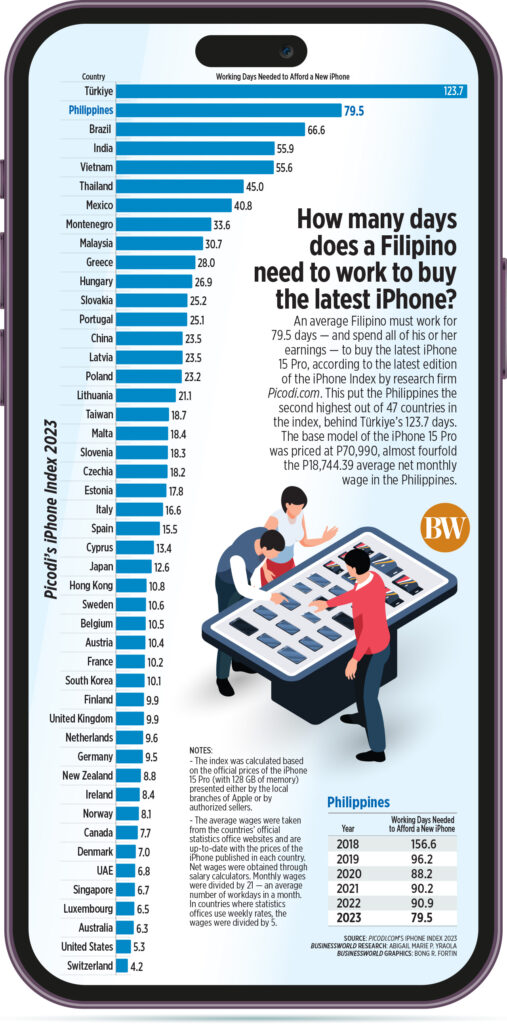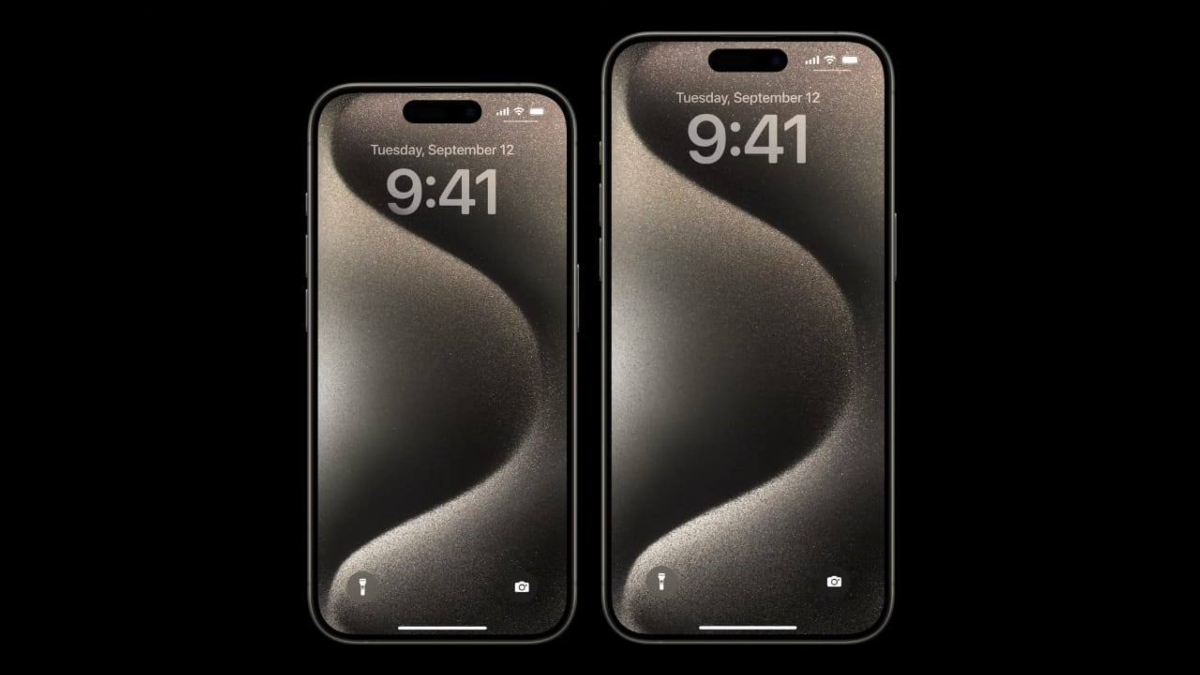In recent findings reported by analytics website Picodi.com, the average Filipino worker will need to labor for 79.5 days to afford the newly launched iPhone 15 Pro, retailing at P79,990 for the 128 GB variant. This places the Philippines second in a ranking of 47 indexed countries where individuals need to work the most number of days to buy the latest iPhone.
The data shows a decrease of 11.4 working days compared to the previous year, as cited by Picodi Philippines. Despite this drop, the figure starkly contrasts with nations like Switzerland, where individuals need only work for 4.2 days to acquire the smartphone, followed by the US and Australia requiring 5.3 and 6.3 working days, respectively.

Turkey leads the list with citizens requiring 123.7 working days, the highest among the surveyed countries, followed by the Philippines and Brazil necessitating 66.6 working days.
Picodi established these findings through their annual iPhone Index, initiated in 2018, which translates the cost of Apple’s newest smartphone into the equivalent of working days based on the average earnings of workers in each country. The analysis leveraged the latest data from Numbeo, identifying the average wage in the Philippines as P18,744.39 net monthly.
However, this report comes under scrutiny as it doesn’t factor in the daily living expenses of individuals. Ronald B. Gustilo, a national campaigner for Digital Pinoys, articulated concerns over Viber, emphasizing that the actual number of working days necessary to buy the new iPhone might surpass 79.5 days, given the escalating prices of basic commodities.
The Philippine Statistics Authority (PSA) corroborates these concerns, noting an acceleration in inflation for the first time in seven months this August, primarily due to rice, vegetables, and fuel becoming pricier. The inflation rate reportedly surged to 5.3% in August, a rise from 4.7% in July, persisting above the central bank’s target range for the 17th consecutive month.
Gustilo highlighted that the current economic scenario might deter Filipinos from splurging on the latest iPhone variant, with many possibly favoring more affordable smartphone alternatives.
“As much as Filipinos want to experience and enjoy the features of the new iPhone variants, many will still opt for smartphone brands with a cheaper price tag,” Gustilo asserted, underscoring the pragmatic approach likely to be adopted by many in the face of rising living costs.





